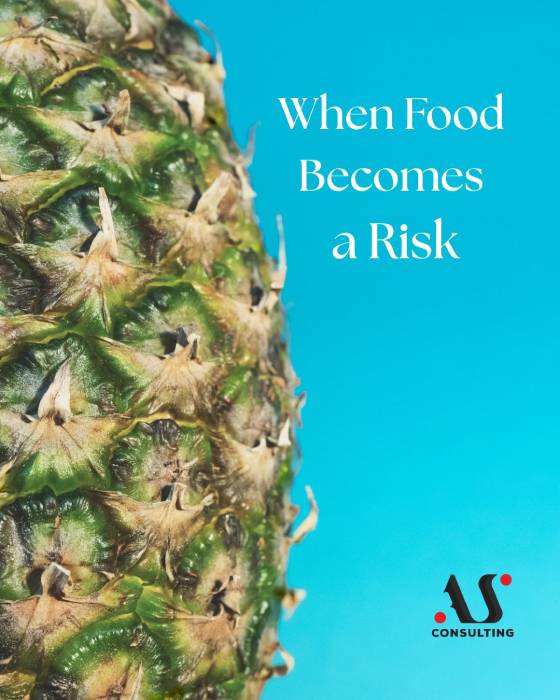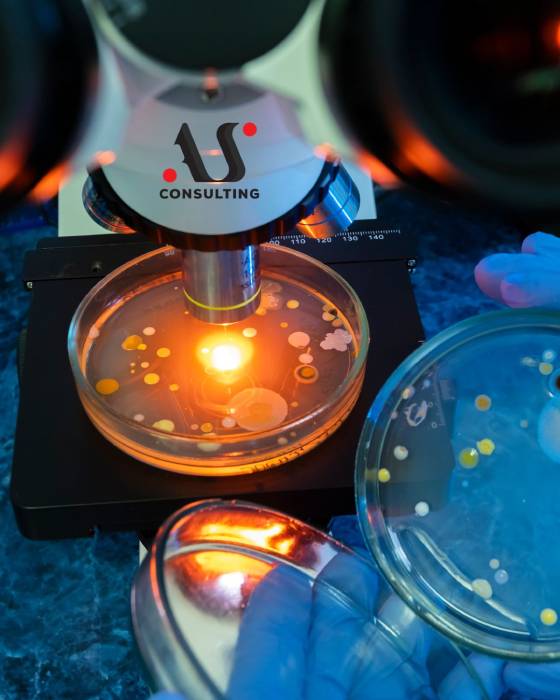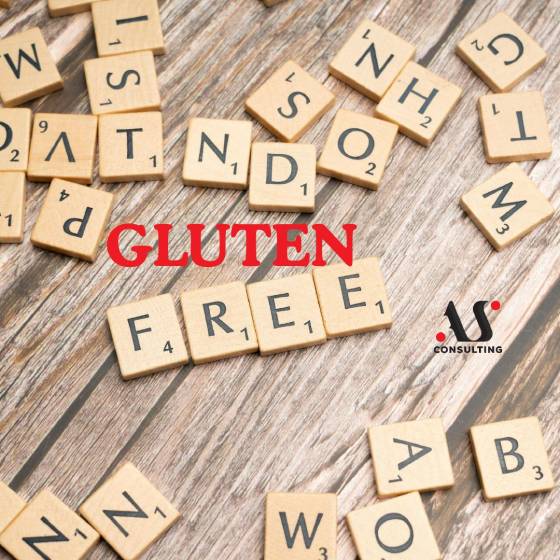
FOOD FRAUD – FRAUDS RELATED TO FOOD NEW TRENDS
February 13, 2023
WATER IN THE FOOD INDUSTRY
March 8, 2023With all the benefits brought by the modern age, people are also exposed to many hazards from water, air and soil. All this affects food as well, so there is a need for ways of food production different from conventional ones. Organic food is food produced in a way that does not include the use of pesticides, artificial fertilizers, genetically modified organisms.
In accordance with the needs, organic agriculture has developed, which goes in the direction of harmonizing development with the needs of the market and preserving the environment and reducing the quantity at the expense of food quality, reducing the use of agrochemicals and favoring agricultural techniques that optimally use natural resources and minimize production waste materials.
- Organic production is based on natural processes and the use of organic and natural mineral substances. In organic production, agents of synthetic-chemical origin cannot be used, except in cases established by law. Genetically modified organisms and their derivatives cannot be used in organic production.
- The main goal of organic agriculture is the production of high-quality food (high nutritional value), the development of sustainable agriculture while preserving the ecosystem, maintaining and increasing soil fertility, applying manure and adding composted and non-composted matter (compost is organic matter decomposed aerobically, it is used as soil improver, as fertilizer and for erosion control)
Organic agriculture
Organic farming is a fully controlled production. So, in order to establish organic agricultural production in an area, it must meet precisely defined conditions.
Due to the high pollution of certain regions on our planet, there are parts, especially in the more developed part of the world, where it is impossible to establish organic production due to decades of use of harmful chemicals, or accumulated poisons in the soil itself. The conditions for establishing organic production are as follows:
1) spatial isolation of land plots, livestock farms and processing plants from possible sources of pollution
2) uncontaminated land, the content of harmful substances is below the prescribed maximum permitted amounts
3) prescribed quality of irrigation water and minimum air pollution of the production area
A plot of land can be included in organic farming immediately if the plot has not been used in the last two or three years in the case of long-term plantations or it was used without the use of means of synthetic-chemical origin.
If the plot was used with the use of means of synthetic-chemical origin, the plot can be included in organic agriculture after the transitional period of two or three years for long-term plantings, without the use of means of synthetic-chemical origin.
Organic livestock production
Organic livestock production can be based on production units that include pastures or other land on which livestock feed is produced or livestock feed is provided for which a certificate has been issued. The inclusion of livestock production in organic production can begin at least one year from the date of inclusion of land plots in organic agriculture, or when organically produced livestock feed is provided from the mentioned plots.
• In organic production, vital species and breeds of animals are used that are adapted to local conditions of rearing and are resistant to diseases. Preference in the selection is given to domestic breeds. Forced feeding, breeding and exploitation of animals is not allowed.
• The number of animals in an organic production unit is determined by the production conditions and capabilities of the organic production unit for the production of food needed for animal nutrition. Adequate population density minimizes environmental pollution.
• Animals must have access to pasture, outlet or open space.
• Reproduction of animals in organic production is done through natural access or artificial insemination.
• Animal breeding is done in spacious facilities that provide enough fresh air and natural light for a certain category of animals
• Animals must not be tied up
• Animals in organic production must have enough space for feeding, watering, lying down (resting) and moving. Access to fresh water and food must be free
• Antibiotics, coccidiostats, medical preparations, growth stimulators or any substances that stimulate growth or production cannot be used in animal nutrition.
• The greatest attention in animal health care is given to prevention. Animals are bred to achieve maximum disease resistance
Packaging, storage and transport of organic products
Packaging. Organic products are packed in packaging made of natural material, and only exceptionally in packaging made of synthetic material. Packaging made of polyvinyl chloride (PVC) and other plastic materials containing chlorine cannot be used when packaging organic products.
Storage. Organic products are stored in special storage rooms. If organic products are packaged and labeled, they can be stored in the same warehouse as conventionally produced products, in a separate, labeled section. Means of internal transport must be free of residues of products of conventional production and residues of inorganic origin.
Transport. Organic products are transported separately from other products, and if they are transported together, they must be packed and clearly marked. Vehicles, containers and equipment intended for the transport of organic farming products must be clean and free of any substances that could contaminate the organic product.
Organic food
Organic food is food produced in a way that does not include the use of pesticides, artificial fertilizers, genetically modified organisms. May be:
- Fresh or unprocessed (primary production products) obtained by observing the specified production conditions;
- processed organic food means food obtained from organic raw materials, in a production process that implies compliance with production, storage and transport conditions that prevent cross-contamination with raw materials and/or products of conventional production.
How can we recognize that food is of organic origin?
Food of organic origin has labels on it that tell us about its status. In order for the producer to meet the requirements for the label: “BIO” or “ORGANIC”, he must undergo a certification process by an authorized certification body. Control for the purpose of obtaining a certificate in organic production refers to physical control, control of the manufacturer’s documentation, as well as the application of precautionary measures. Controls are performed once a year.
The certification process is legally controlled, in such a way that the certification bodies are approved by the competent state authorities, and the certification process itself is defined by the relevant legislation. In Serbia, these are:
- Law on Organic Production (“Official Gazette of RS”, no. 30/2010 and 17/2019 – other laws)
- Rulebook on control and certification in organic production and organic production methods (“Official Gazette of RS”, no. 95/2020 and 24/20021).
In the EU: Regulation (EU) 2018/848 of the European Parliament and of the Council of 30 May 2018 on organic production and labeling of organic products and repealing Council Regulation (EC) No 834/2007.
Organic products and food fraud
Since organic products are more expensive than conventional products of the same type, this opens the door to possible food fraud. Organic products are highly susceptible to fraud, which is why they are considered high-risk foods in relation to food fraud. Occurrences of counterfeiting are frequent, so preventive measures must be taken so that the company does not become a target of fraud. The safest are the analyzes of the products themselves, which will show whether there are any pesticide residues, which allows us to come to the conclusion whether the product is really of organic origin or not.




